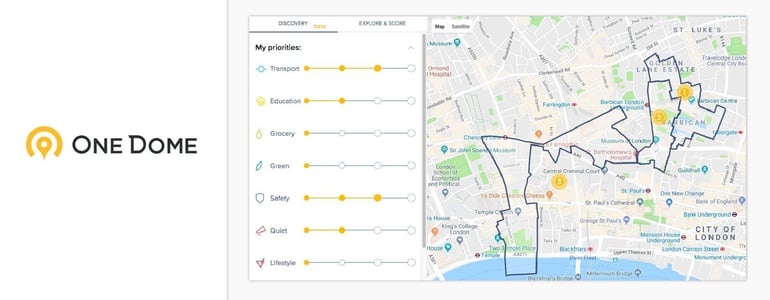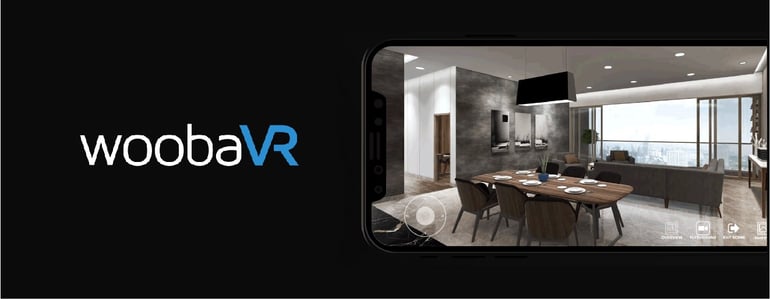By Restb.ai on 20 February 2018
Opportunities for PropTech Disruption
Since the Great Recession of 2008 the value of the real estate market globally has been growing in leaps and bounds. JLL, the global real estate company, estimated in a research report that total real estate transaction volumes would reach US$1 trillion by 2020, up from US$700 billion in 2015. The size and growth of the real estate market provide tremendous opportunities for technology to change the way people find homes and the how professionals in the trade work.
PropTech - the umbrella term for all the technologies meant to support the real estate property sector - intends to change the way "developers, buyers, sellers, renters, investors, and real estate professionals design, construct, market, discover, transact and operate real estate".
The primary intent and implication of digital technology in real estate is the same as a FinTech (financial technology) concept known as disintermediation; that is, cutting out the middlemen and inefficiencies in transactions. Like Uber or Airbnb, PropTech companies seek to make services cheaper and more convenient for consumers. They do this by creating technologies that satisfy consumer needs that agents and mortgage brokers, for instance, have left unmet.
The Real Estate Magazine of Union Investment cites in an article that companies invested US$1.8 billion in PropTech worldwide during the first half of 2016, an increase of 85 percent year-on-year. Sixty percent of the PropTech investment was in the United States, followed by the United Kingdom, India, and Germany.
The researchers also discovered that nearly 20 percent of the property firms surveyed admitted that they do not use any digital technologies in their businesses. The number implies that even the most basic PropTech - such as Customer Relationship Management (CRM) software - through to the most sophisticated Artificial Intelligence-driven websites still have a great deal of growth opportunity.
Startups Disrupting Real Estate
One of the most difficult decisions people encounter is to decide where to live. A tech startup called OneDome has developed a tool that allows users to consider an area based on data from multiple sources. A.I. crunches information about education quality, crime rates, lifestyle and over 150 other categories to enable customers to compare areas with some confidence. TLCengine uses A.I. and big data to calculate the real cost of living in an area. Calculations take into account such expenses as local taxes, utilities, commuting, and more. Other tech companies focus on facilitating home purchases.

Since 2013, Hamburg-based start-up Maklaro has sought to support buyers end-to-end without charge. The centerpiece of its service is an online bidding platform. Maklaro claims its technology provides sales prices 25 percent higher than normal returns. However, there is an essential part of the real estate sales transaction Maklaro does not address: verifying property rights.
Sometimes the due diligence and risk assessment parts of property transactions can delay purchases for weeks because of incomplete information about properties. Orbital Witness uses satellite imagery and A.I. with property, land, and ownership data to assist lawyers in the real estate due diligence process. A.I. is also helping to reduce risks associated with property management.
U.K.-based GetRentr uses A.I. to reduce the regulatory risks involved in managing properties throughout Britain. The software monitors property portfolios to help ensure landlords are in compliance with local regulations. AskPorter is an A.I. chatbot for facilities management. The company claims its messaging platform reduces the costs of administration and management while improving customer satisfaction with maintenance and repair requests. Applications for A.I. in real estate do not end there, however.
Barcelona’s Restb.ai computer vision service helps agencies curate and unlock value from the thousands of property images on their websites. Computer vision is a branch of A.I. involving the recognition, tagging, categorization, and description of the features and settings in property photos. The software makes customer searches for a place to live faster, easier, and more accurate. A.I., however, is not the only leading-edge game in town.
Virtual Reality (VR) and Augmented Reality (AR) are making their presence felt in the real estate sphere.
Buyers can take an interactive tour online that enables them to view an entire property in real time without ever leaving their computer. VR and AR are also taking hold in interior design.
Real estate agencies can use platforms like Immoviewer, GeoCV or Realisti.co to provide customers with virtual tours of properties. Interior designers and architects are using Wooba's VR app and goggles to envision how their plans may look. The Singaporean company does this by assembling 2D and 3D representations through which participants can "walk" to consider new designs.

Humans Remain in the Value Chain
Despite the introduction of so many new technologies into the real estate sector, 85 percent of realtors surveyed in Germany do not believe PropTech threatens their business model. Most see their businesses benefiting professionals and improving their businesses.
Though the new technologies may atomize some traditional roles in the property arena, real estate is still a human endeavor. PropTech may replace a fair number of mundane tasks and relieve the bottlenecks in transactions. Then, professionals will be freer than ever before to achieve what they want to do: make their customers happy.

.jpg)


comments